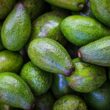Commodity trading is a general term, but not all commodities traders do the same. Generally speaking, there are three types of commodity trading functions and they require different profiles and try to accomplish different goals. Let’s look at the 3 types of commodity traders.

“Commercial” Commodity Traders
On the one side of the spectrum, commodity trading traditionally started with the “merchants” or “souk traders” that were in charge of developing international trade either with naval or overland transportation.
Merchants are one of the most ancient professionals in history, with a purely commercial focus.
RELATED: Who Moves The Coffee Markets? Meet The World’s Largest Green Coffee Traders
Merchants require a combination of fantastic sales skills with adequate commercial strategy and supply chain understanding.
Success among merchant commodity traders is predicated on understanding people very well, creating and maintaining a network in the industry, and being business savvy.
Often, the concept of Merchants is very similar to Sales Traders, although the latter is more common among brokerage firms rather than commodity trading houses.
Commercial commodity traders are usually business graduates who understand supply chain well enough, but are not commonly well-versed in the technicalities of the products they trade.

“Pure” Commodity Traders
On the other side of the spectrum, you’ve got a set of commodities traders who only focus on supply demand, are actively involved in “market-making”, and exploit actively arbitrage opportunities in their different expressions.
Pure commodity traders are less of a commercial mastermind and more of a hard-core risk-taker, with the main goal of maximising profit given a certain capital and risk limits.
RELATED: The Best Commodity Trading Careers Sites
Here you can imagine a Shell Gasoline Trader, a Trafigura Crude Oil Trader, or a Soybean Trader at either of the ABCD companies.
The focus is to buy when cheap, and sell when the market is expensive. This means mostly focusing on the market, with experience increasing the available knowledge of the market’s supply and demand characteristics, as well as the storage and transportation options to be able to capture arbitrage opportunities whenever available.
Pure traders know more about the market they trade than the commodity itself.

“Quant” Commodity Traders
A third type of commodity trader is the modern “Quant” commodity trader, that is most likely never, ever involved in the logistics or supply chain delivery.
Quant commodity traders mainly focus on the paper markets, this means exchange-traded futures and swaps, as well as CIF/FOB markets and other specific markets that exist but that can be traded and for which data exists.
RELATED: Learn Python For Commodity Trading And Data Analysis (With Free PDFs)
Quant traders usually come from a highly quantitative background, with a preponderance of math, physics, chemistry, computer science, statistics, and other disciplines graduates, often with advanced degrees such as MSc or PhD.
Quant traders don’t even need to understand much about the underlying product, instead their focus lies in creating risk-management systems in addition to algorithms that trigger buy or sell signals depending on a set of pre-programmed conditions.
What Type Of Trader Am You?
Do you want to join the world of trading?
If you’re more salesy, try focusing on a rather “commercial” trading career.
If you like business, supply chain, and international trade, then focus on a traditional pure trading career.
If you can code and lean towards a quantitative mindset, head towards quant trading.
Put together a great CV and cover letter, and start applying soonest!








